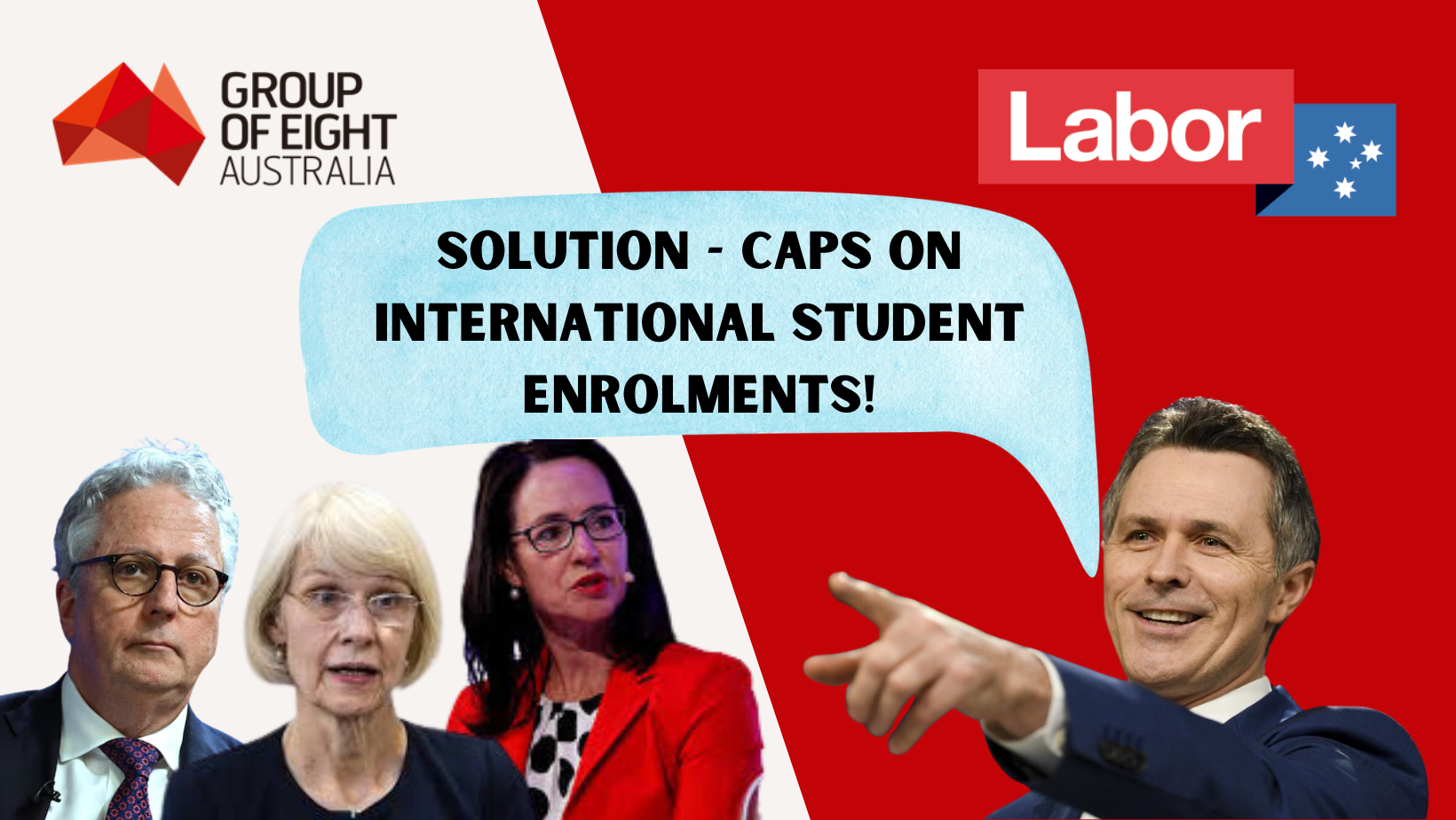
The higher education sector is currently in a heated debate with the government over the proposed legislation that could potentially cap international student enrolments in higher education providers (i.e. universities and TAFEs). This current draft of the proposal, which could have far-reaching implications, emerged earlier this month in the Draft International Education and Skills Strategic Framework and has now become a hot topic in the Senate Education and Employment Legislation Committee’s inquiry into the ESOS Amendment Bill.
What is the Bill About?
The amendments aim to address the exploitation of the current system, issues of ‘disingenuous students,’ ‘ghost colleges,’ and the sector’s overreliance on international student fees. In response, the bill proposes potentially far-reaching solutions, including granting ministerial powers to intervene directly in these matters. This could involve suspending institutions and setting caps for international student enrolments, even specifying the courses they can study, all in the name of ‘national interest.’
Why is this a Problem?
If previous governments are an accurate indicator of how ministerial powers can be used and abused, we need only look back a few years at the political interference in Australian Research Council grants in 2017-18 and 2022.
Former Education Ministers Simon Birmingham and Stuart Roberts used such ministerial powers to veto and reject research applications they felt were ‘not in the public interest.’ If not carefully regulated, this central command approach to managing international student enrolments could one day become problematic if future ministers decide that certain disciplines should have zero international student enrolments at their discretion.
Another issue the sector has overlooked is the extent of the minister’s control over courses at various levels, including research degrees. Essentially, a future minister could have the authority to impose a hard cap on international students undertaking research degrees, such as PhDs, and restrict the disciplines they can enrol in at their personal discretion.
What does the sector think?
Here at UQ, the President (HDR) of the Associations of Postgraduate Students, Richard Lee released a statement:
“International students play an integral role in enriching the higher education experience. Rather than imposing a cap on student intake, the federal government should seize the opportunity to expand public investments in the university sector and social and affordable housing to create a more equitable Australia.”
Universities have responded similarly to these caps with scepticism. The Group of Eight has openly commented, “This is seemingly in response to the public and political discourse which has claimed that migration, particularly international students as temporary migrants, are significant contributors to Australia’s housing crisis.”
Universities Australia has similarly criticised caps on international student enrolments as “short-sighted” and for blaming international students for housing and affordability issues, highlighting: “International students account for only four per cent of the rental market and make up less than one per cent of the housed population in nearly three-quarters of local government areas.”
As expected, universities would oppose a policy that cuts their major revenue sources. However, this situation now raises concerns for the National Tertiary Education Union (NTEU), which fears universities may use this crisis as a pretext to implement further job cuts and casualisation to the workforce.
“We’re deeply concerned that the vice-chancellors are beginning to use this issue as an excuse to threaten staff and students with decisions that damage universities,” said Alison Barnes, the National President of the NTEU.
“The government can stop vice-chancellors’ scaremongering by guaranteeing staff won’t be hurt by changes to international students.”
The Current state of play:
This bill is expected to pass easily in the lower house due to the government’s ALP majority. However, it will require external support to pass in the Senate. It is unlikely that the ALP will receive any support from the Australian Greens in the Senate, as Deputy Greens leader Senator Mehreen Faruqi has spoken out against the bill, stating:
“Labor’s international student cap bill is an audacious attack on fundamental principles of student choice and university independence, and it’s no wonder the plan is attracting so much opposition within the higher education sector.
“The bill is a blatant power grab, giving the Education Minister an unprecedented, dangerous level of ministerial discretion over universities.
“Governments should not be micromanaging students or universities.”
While the Liberal Coalition has not officially released a public statement opposing the bill, its policy platform indicates support. The Coalition’s platform states that it intends to “reduce the number of foreign students at metropolitan universities, increase the student visa fee, and apply it to foreign students who change providers” as one of its measures to alleviate pressure on the housing market.
Given the opposition’s stance, bipartisanship between ALP and the coalition in the Senate appears likely, making the passing of this bill inevitable.
It’s a sad day for international students in higher education.
Views: 57

